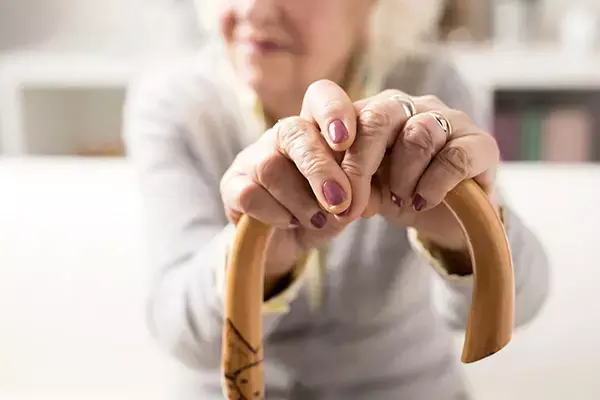- Home
- Medical news & Guidelines
- Anesthesiology
- Cardiology and CTVS
- Critical Care
- Dentistry
- Dermatology
- Diabetes and Endocrinology
- ENT
- Gastroenterology
- Medicine
- Nephrology
- Neurology
- Obstretics-Gynaecology
- Oncology
- Ophthalmology
- Orthopaedics
- Pediatrics-Neonatology
- Psychiatry
- Pulmonology
- Radiology
- Surgery
- Urology
- Laboratory Medicine
- Diet
- Nursing
- Paramedical
- Physiotherapy
- Health news
- Fact Check
- Bone Health Fact Check
- Brain Health Fact Check
- Cancer Related Fact Check
- Child Care Fact Check
- Dental and oral health fact check
- Diabetes and metabolic health fact check
- Diet and Nutrition Fact Check
- Eye and ENT Care Fact Check
- Fitness fact check
- Gut health fact check
- Heart health fact check
- Kidney health fact check
- Medical education fact check
- Men's health fact check
- Respiratory fact check
- Skin and hair care fact check
- Vaccine and Immunization fact check
- Women's health fact check
- AYUSH
- State News
- Andaman and Nicobar Islands
- Andhra Pradesh
- Arunachal Pradesh
- Assam
- Bihar
- Chandigarh
- Chattisgarh
- Dadra and Nagar Haveli
- Daman and Diu
- Delhi
- Goa
- Gujarat
- Haryana
- Himachal Pradesh
- Jammu & Kashmir
- Jharkhand
- Karnataka
- Kerala
- Ladakh
- Lakshadweep
- Madhya Pradesh
- Maharashtra
- Manipur
- Meghalaya
- Mizoram
- Nagaland
- Odisha
- Puducherry
- Punjab
- Rajasthan
- Sikkim
- Tamil Nadu
- Telangana
- Tripura
- Uttar Pradesh
- Uttrakhand
- West Bengal
- Medical Education
- Industry
Individuals with COPD and frailty have increased risk of dyspnea and exacerbations: Study

A new study published in the journal of BMC Pulmonary Medicine showed that dyspnea (mMRC score 1.67), symptom load (CAT score 10.24), and exacerbations were considerably greater in frail patients with chronic obstructive pulmonary disease (COPD).
Frailty is a multifaceted condition marked by a build-up of physiological deficiencies that lead to a loss of functional, cognitive, and physical reserves. A person is more susceptible to health stresses, including falls, hospital stays, and acute flare-ups of chronic illnesses, when frailty is present and worsens.
Despite the underlying causes of frailty are many, they share characteristics with those of COPD, including endocrine dysregulation, decreased muscle mass and function, and chronic systemic inflammation. To learn more about the relationship between frailty and clinical outcomes for individuals with COPD, Mathew Cherian and team conducted a systematic review and meta-analysis of the literature.
This study reviewed MEDLINE, Cochrane Central, EMBASE, CINAHL, and Web of Science for observational studies assessing the relationship between frailty and clinical outcomes in people with COPD. The included studies evaluated dyspnea, symptom load, health-related quality of life, exacerbations, hospitalization, or death between frail and non-frail patients, diagnosed COPD by spirometry, and employed a validated frailty assessment instrument.
7 of the 16 studies which represented a total of 5903 individuals were included in the meta-analyses out of the 1,385 identified studies. 50% of the included studies employed the Fried Frailty Phenotype assessment. Pooled estimates showed that frail individuals with COPD experienced increased dyspnea ratings, a greater burden of symptoms, and more COPD exacerbations during the previous year when compared to non-frail individuals. Frail vs. non-frail COPD patients had a higher mortality risk, according to the biggest research with the longest follow-up duration.
Overall, the patients who are frail have higher rates of hospitalizations, exacerbations, symptom load, and dyspnea when compared to COPD patients who are not weak. Frailty should be seen as a therapeutic feature because it is a strong predictor of outcomes for individuals with COPD.
Reference:
Cherian, M., Masoudian, P., Thavorn, K., Sandoz, J., Shorr, R., & Mulpuru, S. (2025). The impact of frailty on clinical outcomes among individuals with COPD: a systematic review and meta-analysis. BMC Pulmonary Medicine, 25(1), 146. https://doi.org/10.1186/s12890-025-03595-z
Neuroscience Masters graduate
Jacinthlyn Sylvia, a Neuroscience Master's graduate from Chennai has worked extensively in deciphering the neurobiology of cognition and motor control in aging. She also has spread-out exposure to Neurosurgery from her Bachelor’s. She is currently involved in active Neuro-Oncology research. She is an upcoming neuroscientist with a fiery passion for writing. Her news cover at Medical Dialogues feature recent discoveries and updates from the healthcare and biomedical research fields. She can be reached at editorial@medicaldialogues.in
Dr Kamal Kant Kohli-MBBS, DTCD- a chest specialist with more than 30 years of practice and a flair for writing clinical articles, Dr Kamal Kant Kohli joined Medical Dialogues as a Chief Editor of Medical News. Besides writing articles, as an editor, he proofreads and verifies all the medical content published on Medical Dialogues including those coming from journals, studies,medical conferences,guidelines etc. Email: drkohli@medicaldialogues.in. Contact no. 011-43720751


